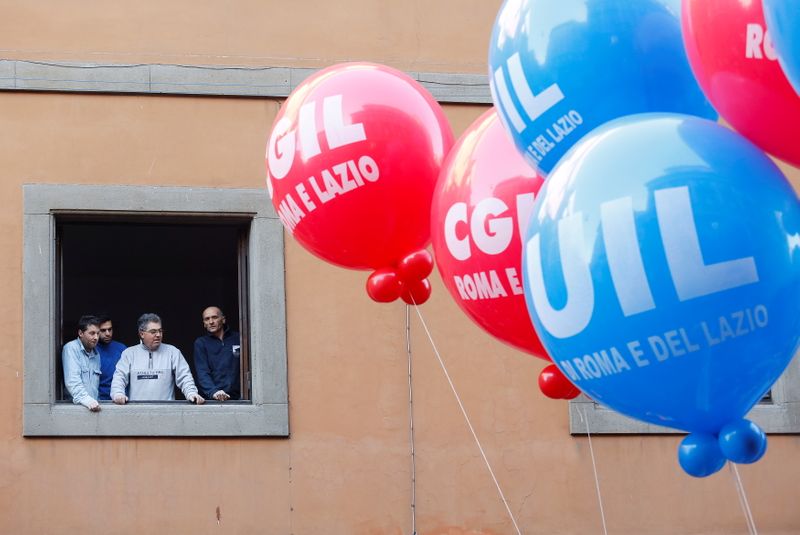
© Reuters. FILE PHOTO: People look out from a window during a demonstration against government in downtown Rome December 12, 2014. REUTERS/Remo Casilli
ROME (Reuters) – Two of Italy’s largest unions have called a national strike to protest against the government’s 2022 budget, splitting the labour movement and angering Prime Minister Mario Draghi’s allies.
The CGIL and UIL unions called the one-day stoppage for Dec. 16, saying in a statement released late Monday that they opposed measures in the budget concerning taxes, pensions, schools, industrial policies and job insecurity.
However, Italy’s second largest union, CISL, said it would not take part in the protest — the first such split between the country’s big three labour groups since 2014.
“The CISL considers it wrong to resort to a general strike and to radicalise the conflict at such a delicate time for the country, which is still committed to tackling a pandemic that will not let up,” CISL said in a statement.
Parties across the political spectrum that support Draghi’s unity government also criticised the strike, saying the budget offered 8 billion euros ($9 billion) of tax cuts, mostly aimed at lower earners.
“Certainly this is not a reform that penalises workers or pensioners,” said Andrea Orlando, the labour minister and leading figure in the centre-left Democratic Party (PD).
Matteo Salvini, leader of the rightist League party, was more forthright, calling the strike call “inexplicable and irresponsible”.
Government officials have met union chiefs on several occasions to discuss the budget, most recently last Friday. The CGIL and UIL representatives have called for the planned tax cuts to be aimed more at the lowest paid and want more help to be given to poorer families to deal with energy price hikes.
“The resources available at this stage … (should) have enabled a more effective redistribution of wealth,” CGIL and UIL said in their joint statement.
The two unions called for rallies in four cities on Dec. 16 but it is not clear if the strike call would have any major impact on the economy.
($1 = 0.8876 euros)
Source: Investing.com





























